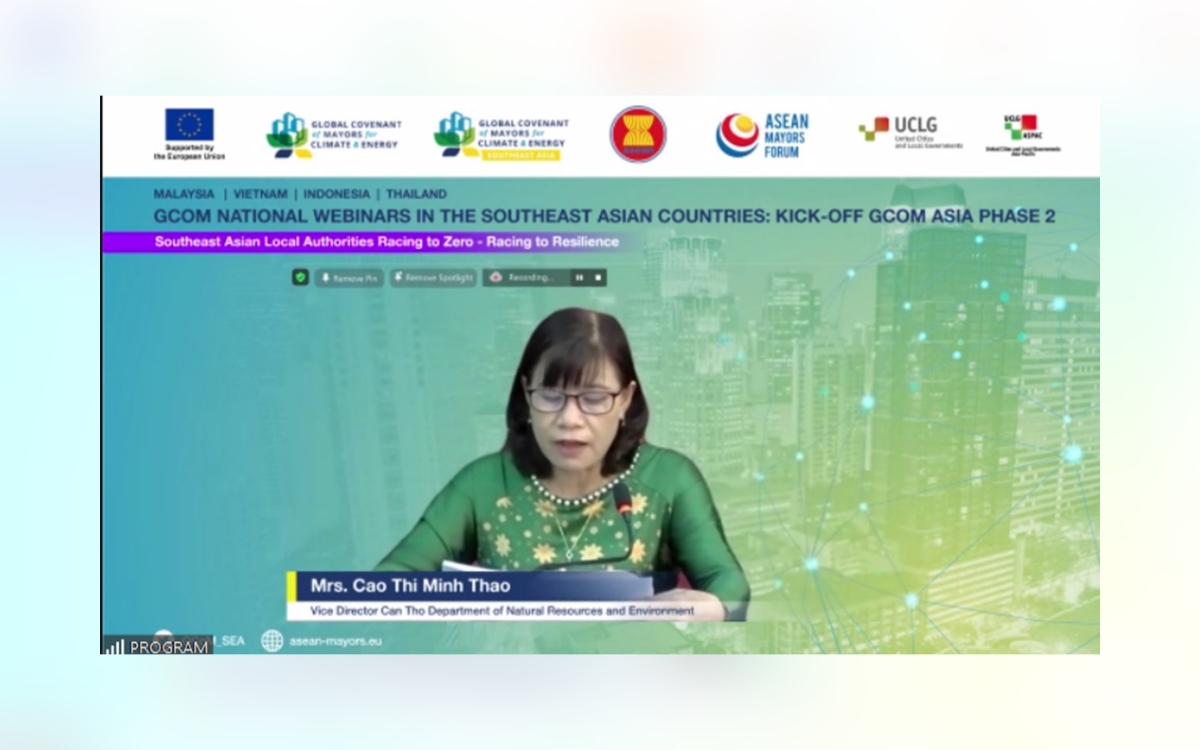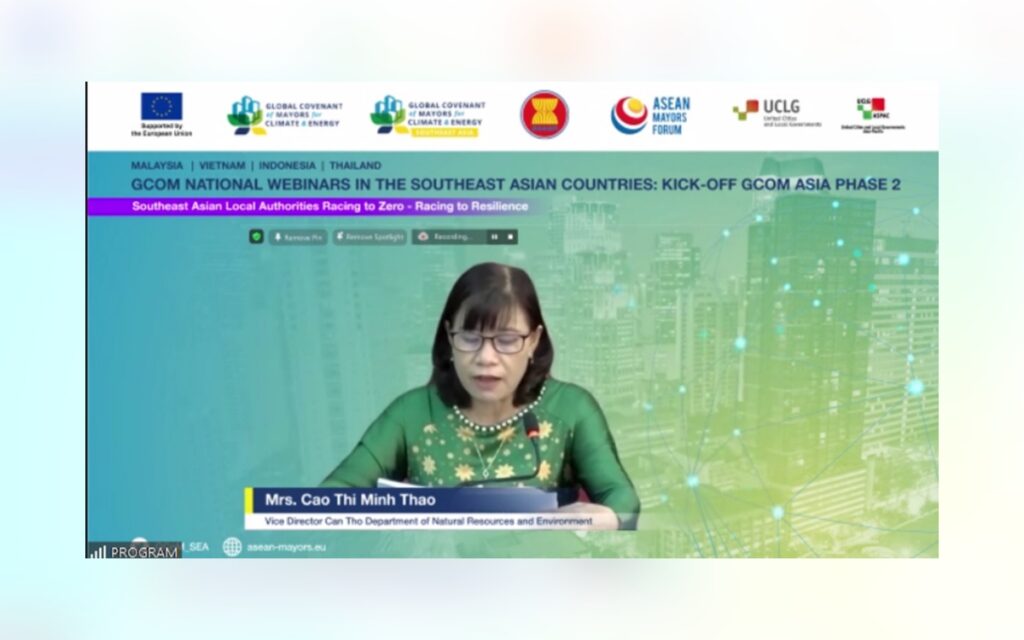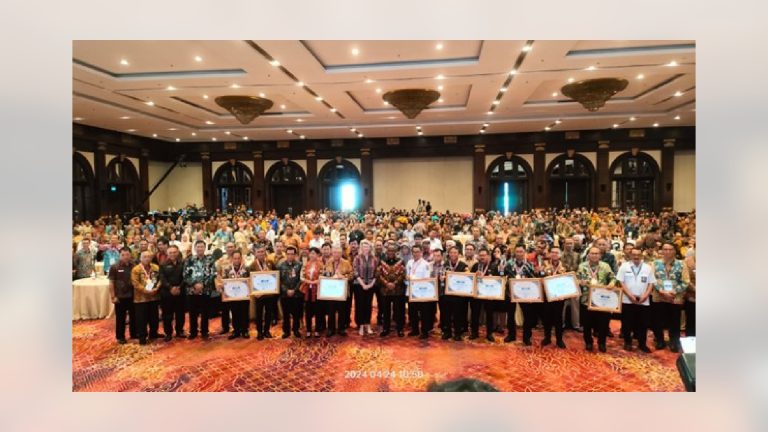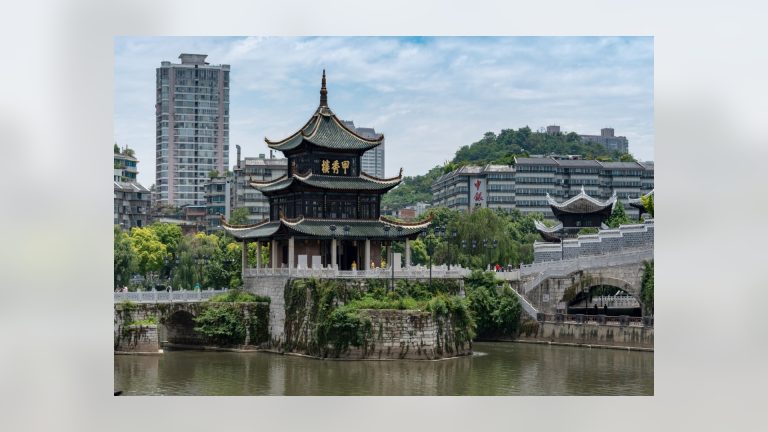[et_pb_section fb_built=”1″ admin_label=”section” _builder_version=”3.22″][et_pb_row admin_label=”row” _builder_version=”3.25″ background_size=”initial” background_position=”top_left” background_repeat=”repeat”][et_pb_column type=”4_4″ _builder_version=”3.25″ custom_padding=”|||” custom_padding__hover=”|||”][et_pb_text admin_label=”Text” _builder_version=”3.27.4″ background_size=”initial” background_position=”top_left” background_repeat=”repeat”]
The GCoM Asia Project | Southeast Asia Secretariat | Vietnam
Asia and the Pacific have always been known for their vulnerability to the impacts of climate change. Asia and the Pacific are also the biggest contributors to GHG emissions. In this sense, many of the most vulnerable Asia-Pacific countries are responsible for over half of global greenhouse gas emissions (UNESCAP, n.d.).
In Vietnam, factors such as rising urban population and rapid development in susceptible areas (i.e., coastal areas) seem to have predominantly contributed to the likelihood of adverse events in the region (Thomas and Lopez, 2015). Between 1970 and 2020, the region accounted for 57 percent of global fatalities from disasters and 87 percent of the global population that has been affected by natural hazards (UNESCAP 2021). As of 2022, Vietnam is ranked 91 out of 191 countries in disaster risk levels – mainly because Vietnam is highly exposed to extreme hazards such as flooding, tropical cyclones, and even tsunamis (INFORM Risk, 2022). Additionally, Vietnam, for example, is responsible for over 282 million tons of CO2 emissions, second only to Indonesia in Southeast Asia (Do, 2021).
In capitalizing on the said climate opportunities, there are several prerequisites that local governments must fulfil. Local governments must come to possess a sound and strategic framework for assessing, planning, and reducing current levels of GHG emissions and their consequent climate impacts. Yet a comprehensive climate action plan alone is not enough. A climate action plan must also be in sync with- or embedded into the local government’s development agenda for it to flourish and yield fruitful results.
As the largest section of cities and local governments association, United Cities and Local Governments Asia-Pacific (UCLG ASPAC) is an ardent advocate for climate resilience by pushing for climate commitment and actions locally. UCLG ASPAC is also taking role as the Global Covenant of Mayors for Climate and Energy (GCoM) Secretariat for Southeast Asia. GCoM is an international alliance of cities and local governments with a shared long-term vision of promoting and supporting voluntary action to combat climate change and move to a low emission, resilient society. In doing so, GCoM, through its national and regional covenants, serves cities and local governments by mobilizing and supporting ambitious, measurable, planned climate and energy action in their communities, with Asian cities being central to their initiative.
On the 17th of January 2022, the GCoM Southeast Asia (GCoM SEA) webinar titled ‘Mainstreaming Climate Action Plan into Local Development Agenda’ took place virtually. This webinar is solely dedicated to Vietnamese cities to grasp and discuss the preliminary requisites, the technicalities, and the implications of mainstreaming climate action plans into their respective local development agendas. Attending this very event was the Secretary-General of UCLG ASPAC, Dr. Bernadia Irawati Tjandradewi, the Secretary-General of Association of Cities of Vietnam (ACVN), Ngo Trung Hai, the Director of Ozone Layer Protection and Low Carbon Economy Development Center at the Ministry of Natural Resources and Environment Vietnam, Mr. Ha Quang Anh, PhD, and the representatives of Da Nang city, Can Tho city, and Tam Ky city.
In his presentation, Mr. Ha Quang Anh, PhD enlightened Vietnamese city representatives with the potential benefits of mainstreaming their respective climate action plans into local planning agendas and documents.
‘Mainstreaming government policies at different levels will create universal responses, universal impacts and, at the same time, help governments to avoid any overlapping of function between government agencies,’ said Mr. Ha Quang Anh. ‘Currently, however, Vietnam and its cities are still struggling to achieve the said uniformity – although this does not mean that we are not going to [achieve the very uniformity] in the future.’
Indeed, several Vietnamese cities are currently trying to align their climate action plans with their respective local development plans. For instance, Can Tho city is initiating a series of training for its staff to smoothen the city’s ambition to construct and eventually integrate its climate action plan into Can Tho’s local development plans. While Da Nang city envisages community participation as one of the key tenets to mainstreaming its climate action plan.
However, these initiatives are not without issues. Rather, all participating cities have reported several prevailing obstacles that they must overcome to manifest their desires. In this webinar, the representative of Tam Ky city, Mr. Tran Trung Hau, revisited the numerous issues that they face when trying to incorporate its climate action plan into the city’s local development agenda.
“We saw numerous problems that we (local governments) must face directly, such as the lack of expert participation to cultivate a sound climate action plan, the lack of financial backing, the low level of awareness, data gathering difficulties, and ambiguous yet conflicting directives from the national government,” stated the representative, whilst highlighting the need for the Vietnamese government to come up with a regulatory framework to govern CPI-related activities. “Albeit these issues have been, to say the least, troublesome, but it does not faze us. We will try to the best of our abilities to come up with practical solutions to overcome the said issues,” added Mr. Tran Trung Hau.
In his closing remarks, Mr. Ngo Trung Hai acknowledged the need for an overarching regulatory product that will govern mainstreaming-related activities. For Mr. Ngo Trung Hai, the addition of such a rule will aid sub-national governments, especially provincial governments, in passing down directions and vertically streamlining their policies and aims to municipalities for a greener and better future.
While there is still a long way to go for Vietnamese cities, they are ready to take concrete measures with long-term impact to tackle the interconnected challenges of climate change mitigation, adaptation, and access to sustainable energy. And with the support and technical assistance from the GCoM Southeast Asia Secretariat, these cities are confident that they will be able to overcome these issues and contribute to the uphill battle against climate change and its crippling impacts.
By KM Team
[/et_pb_text][et_pb_code _builder_version=”4.9.2″ _module_preset=”default” hover_enabled=”0″ sticky_enabled=”0″]
[/et_pb_code][/et_pb_column][/et_pb_row][/et_pb_section]












